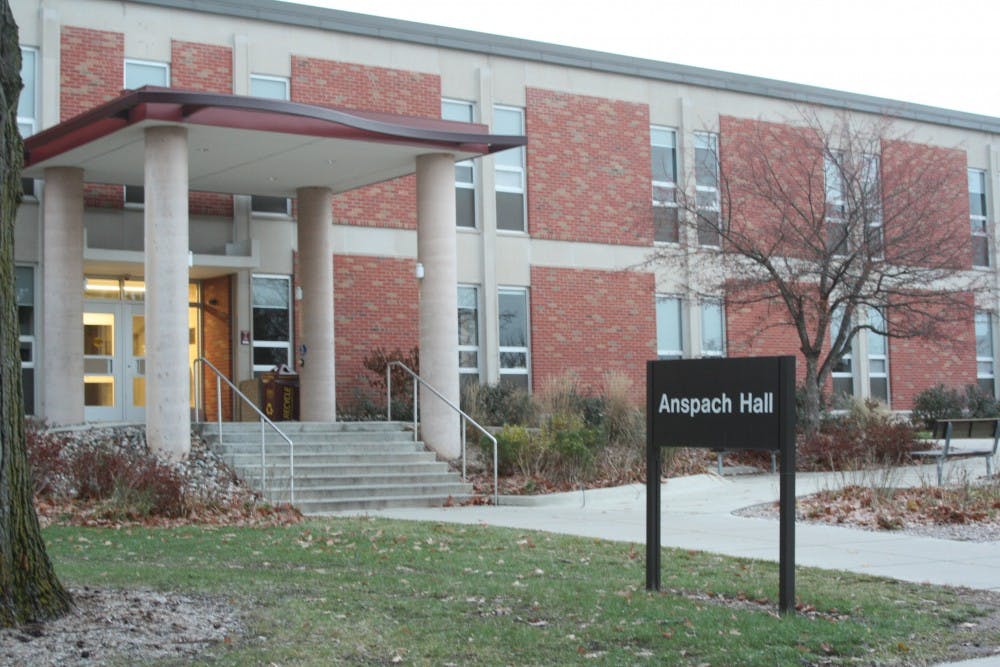CMU neuroscience faculty submit proposal to become school of neuroscience

Anspach Hall, which houses the College of Humanities and Social and Behavioral Sciences, on Nov. 19.
While many faculty and staff members have expressed doubts about Central Michigan University's academic reorganization initiative, faculty within the neuroscience program are using it as a potential opportunity to make improvements for their students.
Gary Dunbar, director of the neuroscience program, along with four senior members of the faculty submitted a proposal on Nov. 17 to become a school of neuroscience within the College of Health Professions or the College of Medicine.
The plan to become a school of neuroscience has been in the works for about three years, said Dunbar.
Faculty have been hoping to expand the program since 2013, when it was named Undergraduate Program of the Year by the Society for Neuroscience, the world's largest organization of scientists and physicians in the field of neuroscience.
“What this reorganization has done, is push the process into warp speed,” Dunbar said.
The interdisciplinary program is currently housed within the College of Humanities and Social and Behavioral Sciences at CMU.
The program includes classes from the biology, chemistry, health sciences and psychology departments. CMU students can receive a bachelor’s, master’s and doctorate in neuroscience.
The undergraduate program has two tracks: general and graduate preparation.
The general neuroscience track provides insight to the inner workings of the brain and nervous system. The graduate preparation track allows undergraduate students to develop a comprehensive understanding of the brain and nervous system.
Those in the graduate preparation track have the opportunity to take courses and conduct research alongside graduate students.
Psychology faculty member Michael Sandstrom, who teaches a neuroscience seminar with undergraduate and graduate students describes it as “going deep down the rabbit hole of neuroscience.”
The undergraduate program will still be interdisciplinary.
The way the program is organized, decisions about curriculum and staffing are made primarily by the biology, chemistry, psychology and health sciences department chairs.
“If someone in biology wanted to do a seminar in neuroscience and the department chair needed them to teach biology courses instead, they would be obligated to do so,” Dunbar said. “I get that. They aren’t getting paid by neuroscience. They do it out of the goodness of their hearts.”
Dunbar said with a school of neuroscience, those decisions could be made with neuroscience as a top priority.
The school would include a core faculty member whose primary commitment is to neuroscience and other faculty who teach electives in their respective departments.
Sandstrom said the change would also provide more stability for students in the program.
“There are students every semester getting forms signed to substitute required classes that aren’t being offered,” Sandstrom said. “A school of neuroscience would give us the ability to make decisions about when courses are offered.”
The proposal was submitted to the reorganization committee. The committee will review it, provide recommendations and pass it on to the provost, president and Board of Trustees, who are tasked with making the final decision.



